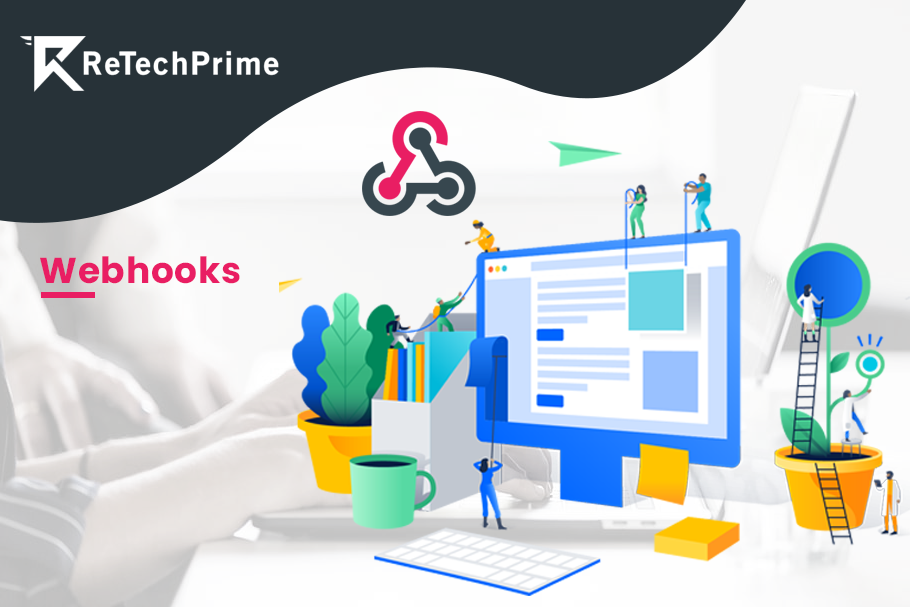Is WebHook a Game Changer in Oracle Retail Cloud?
- 19 Sep / 2024
- 7 Min Read
Oracle's announcement that Merchandising REST Publishing APIs will officially include WebHook support (GA) in April 2024 has sparked significant interest in the retail technology community. The introduction of WebHooks, combined with TLS encryption, could indeed be a game-changer for Oracle Retail Cloud, particularly in the context of Merchandising operations.
What are WebHooks?
WebHooks are user-defined HTTP callbacks that allow real-time communication between different systems or applications. They work by triggering an event or action when specific conditions are met, sending data immediately to the predefined endpoint. This contrasts with traditional polling methods of the orchestration where systems repeatedly check for updates, often leading to inefficiencies and delays.
In the context of Oracle Retail Cloud, the integration of WebHooks with Merchandising REST Publishing APIs means that retailers can now automate and streamline their processes with greater efficiency and real time based. This development could be a pivotal shift in how retail operations are managed within the Oracle ecosystem mainly after moving to the SaaS world.
Why is this Important?
- Real-Time Data Flow: One of the most significant advantages of WebHooks is the ability to receive real-time updates. In retail, where inventory levels, pricing, and promotions are dynamic and require constant monitoring, having real-time data can lead to faster decision-making and improved operational efficiency. For example, when a new product is added to the inventory, a WebHook can instantly notify all connected systems, ensuring seamless integration across platforms.
- Reduced Latency: Traditional polling methods can introduce latency, as systems must frequently request data to check for updates. With WebHooks, the data is pushed as soon as it becomes available, reducing the time lag and allowing for near-instantaneous responses to changes in the retail environment.
- Improved Integration: Oracle's Retail Cloud is a comprehensive suite that connects various retail operations, including merchandising, inventory management, and pricing. WebHooks enhance this integration by allowing different components to communicate more effectively. For instance, changes in merchandising data can automatically trigger updates in the inventory management system, ensuring that all parts of the retail operation are synchronized.
- Enhanced Security with TLS Encryption: Oracle's decision to support only TLS (Transport Layer Security) encryption for WebHooks adds an essential layer of security. TLS ensures that data transmitted between systems is encrypted, preventing unauthorized access and ensuring that sensitive retail data remains protected. In an era where data breaches are a significant concern, this focus on security is crucial for maintaining trust in Oracle's Retail Cloud solutions.
- Scalability and Customization: Retailers often have unique needs that require customized solutions and that’s the major setback in the SaaS world. With WebHooks, Oracle Retail Cloud can be tailored to meet specific business requirements, allowing for more flexible and scalable operations. Whether it's integrating third-party applications or automating complex workflows, WebHooks provide the tools necessary to adapt to changing retail landscapes.
Challenges and Considerations
While the introduction of WebHooks is a positive step forward, there are some considerations that retailers must keep in mind:
- Implementation Complexity: Integrating WebHooks into existing systems may require significant effort, particularly for retailers with complex IT infrastructures. Proper planning and testing are essential to ensure that WebHooks function as intended without disrupting ongoing operations.
- Monitoring and Maintenance: WebHooks require ongoing monitoring to ensure they are functioning correctly. Any issues with the endpoint or the WebHook itself could lead to missed or delayed updates, potentially impacting critical retail processes. Here automated monitoring mainly for the availability or accessibility of the end points will be the key.
- Dependence on Network Stability: Since WebHooks rely on HTTP communication, they are dependent on network stability. Any disruptions in network connectivity could lead to delays in data transmission, which could affect time-sensitive retail operations.
Conclusion
The inclusion of WebHooks in Oracle Retail Cloud's Merchandising REST Publishing APIs marks a significant advancement in retail technology. By enabling real-time data flow, reducing latency, and enhancing security with TLS encryption, WebHooks have the potential to transform how retailers manage their operations within the Oracle ecosystem.
However, as with any technological innovation, successful implementation will depend on careful planning, testing, and ongoing monitoring. Retailers that invest in these areas stand to gain a competitive edge, leveraging WebHooks to drive efficiency, responsiveness, and security in their operations.
In summary, while WebHooks may not be a complete game-changer on their own, when combined with the broader capabilities of Oracle Retail Cloud, they represent a powerful tool that can significantly enhance the retail experience in the digital age.



 +91 62893 56967
+91 62893 56967 +1 980 202 9935
+1 980 202 9935